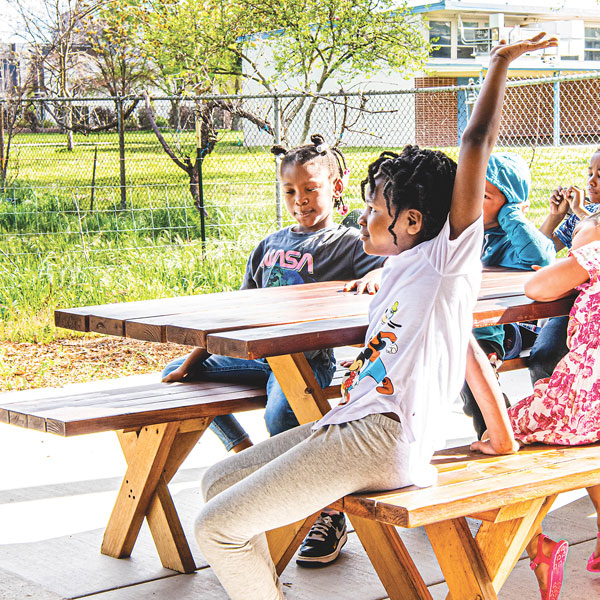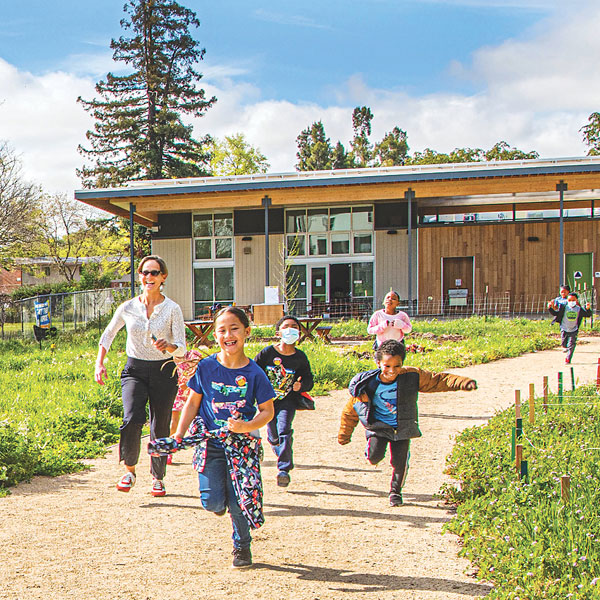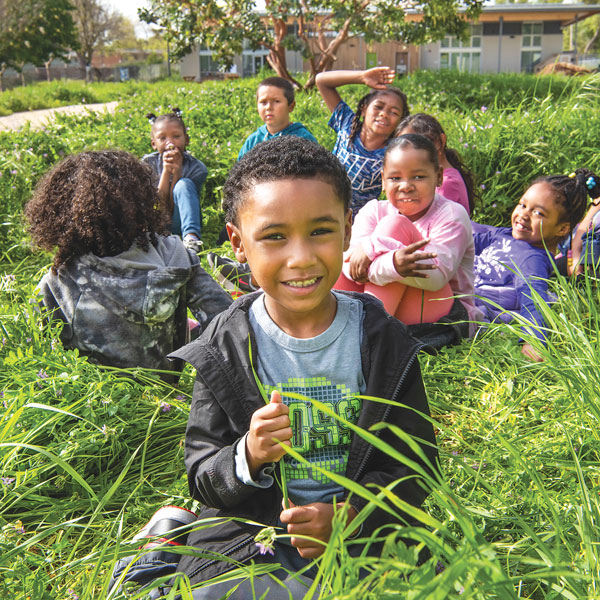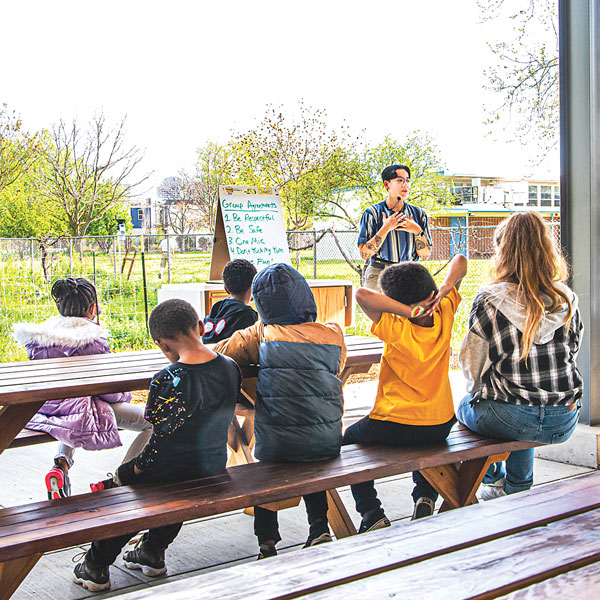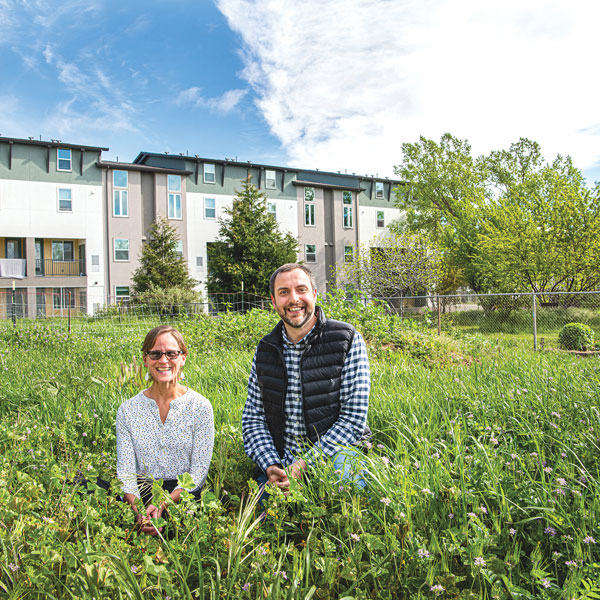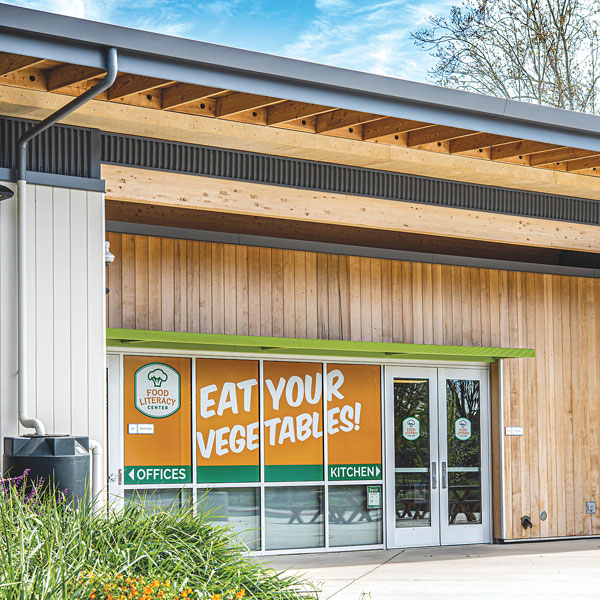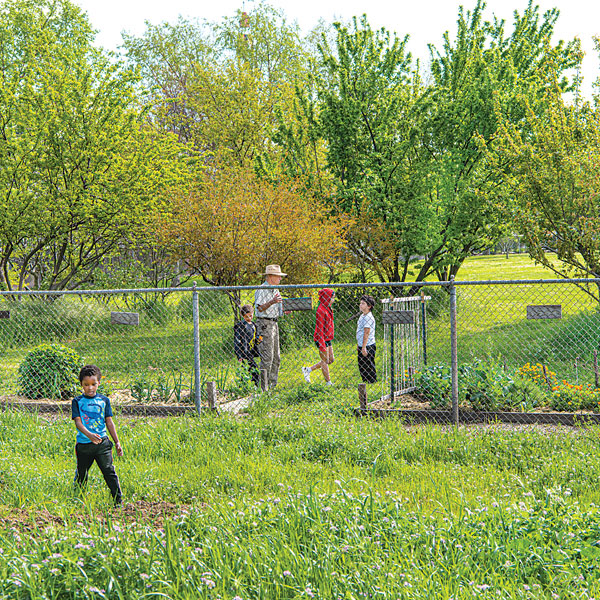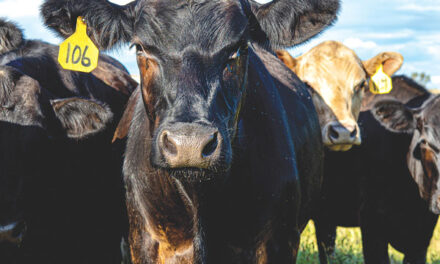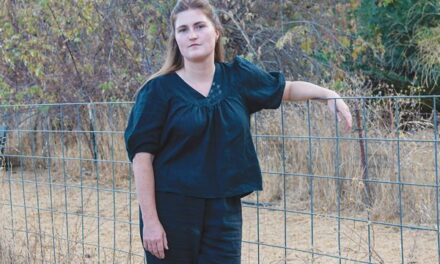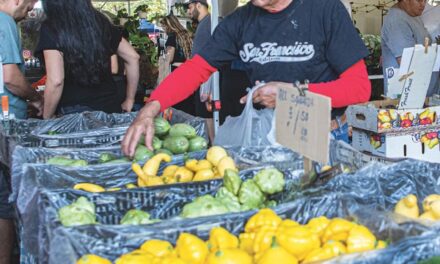Garden State
Farm to Fork office spreads nutritional wealth
By Gabrielle Myers
May 2023
Imagine living in a state where every resident, child to elder, has access to farm-fresh, healing, life-sustaining produce.
For decades, access to nourishing produce has been associated with more privileged lifestyles. In poorer areas, adults suffer diet-related health conditions. Children are often malnourished. Ten percent of Californians have diabetes.
People with the least amount of money often travel long distances for healthy produce.
In recent months, I’ve learned about the California Office of Farm to Fork and its Farm to School Program. I began to see threads pulling together the farm-to-fork movement. Each link forms a chain of relationships.
The state’s Farm to Fork office builds and maintains relationships among government agencies, farmers, schools and people who need farm-fresh produce. Office supervisor Elysia Fong says the mission is “to increase food access for all Californians, and we recognize that to do so we need to focus on under-resourced communities throughout the state, with equity as our guiding principle. Every one of our grant programs is run with that lens.”
Nick Anicich, head of the office’s Farm to School branch, describes a simple strategy: “Ask people what they need and give it to them. Find really mission-driven people and find out how we can best support them.”
To address equity and access to healthy food, the Office of Farm to Fork supports the Farm to School Program and California Nutrition Incentive. California schools provide children with breakfast and lunch, which opens a “huge opportunity to feed kids farm-fresh foods,” Anicich says.
The California Nutrition Incentive gives a dollar-for-dollar match to people with CalFresh benefits when they purchase California-grown produce and nuts at farmers markets, small retailers, mobile markets and community-supported agriculture programs.
By encouraging people to buy these vital foods, the program helps meet public health goals and supports farmers.
The Farm to School Incubator Program, a $60 million program coming this fall, will cover a wide spectrum. There’s the Farm to School Grant (for grades K-12), Farm to Early Childhood Care Grant, Farm to School Producer Grant and Farm to School Partnership Grant.
Unfortunately, there’s no funding track for food programs in community colleges and public universities. The support is there for higher education, but individual schools need to reach out to the Farm to Fork office.
Food hubs, which bring together farmers, processors, schools and other institutions for easy access to fresh produce, continue to play a central role in distributing quality foods.
Currently, the Farm to Fork office supports seven food hubs. The office collaborates through UC Extension with the CA Food Hub Network to share information.
The state Urban Agriculture Grant Program aims to fund urban agricultural organizations to build food system infrastructure, support food-related employment and training of youth, and provide technical help and mentorship.
Sara Bernal heads the Urban Ag grant effort. She visits farmers throughout the state to learn what support they need. Bernal plans on “using a community-informed approach that will help equitably distribute funds to underserved urban agriculture stakeholders across the state,” she says.
The Office of Farm to Fork Healthy Refrigeration Grant includes up to $9 million for small businesses, corner stores, nonprofits and food donation programs in lower-income and low-access areas. The program provides refrigeration services for fresh and minimally processed fruits, vegetables, nuts, meat, eggs and dairy products.
As Fong says, “With these investments being made in nutrition and food access, one dream is that we would see the lasting positive health outcomes that nutrition and nutrition education can achieve for all.”
The Office of Farm to Fork wants healthy meals on every California table. “We support anyone who calls us, and if there is no established program to funnel them into, we share our resources and knowledge,” Anicich says. “There is funding here, there are resources here. Please call and let us know how we can help you.”
Learn more about the Office of Farm to Fork at cafarmtofork.cdfa.ca.gov.
Gabrielle Myers can be reached at gabriellemyers11@gmail.com. Her latest book of poetry, “Too Many Seeds,” can be ordered from fishinglinepress.com. Follow us on Facebook, Twitter and Instagram: @insidesacramento.



